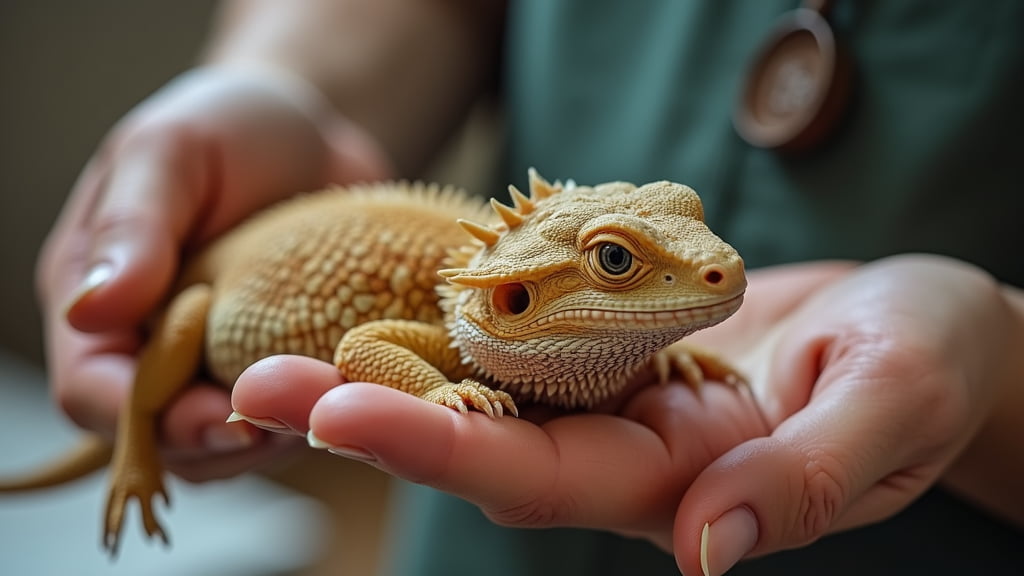Are you the proud owner of a bearded dragon or considering becoming one? The journey with these fascinating reptiles is rewarding but comes with its own set of responsibilities. One of the most crucial aspects of bearded dragon care is ensuring they receive proper veterinary attention when needed. In this blog post, we’ll delve into the importance of finding a vet for your bearded dragon, offering practical advice, expert insights, and personal experiences to guide you through the process.
Why Your Bearded Dragon Needs a Specialist Vet
The Unique Healthcare Needs of Bearded Dragons
Bearded dragons, or “beardies” as many affectionately call them, are intriguing and hardy. However, like all pets, they can encounter health issues that require professional intervention. Unlike dogs and cats, the anatomy and physiology of reptiles are significantly different, necessitating vets with specialised knowledge.
Common Health Issues
Knowing the common health issues helps you understand why a specialist is paramount:
- Metabolic Bone Disease: This can occur due to inadequate UVB exposure or poor diet.
- Parasites: Both internal and external parasites can affect beardies.
- Respiratory Infections: Caused by improper humidity or temperature levels.
A qualified reptile vet understands these conditions and can provide the correct treatments.
How to Identify a Qualified Reptile Vet
Research and Recommendations
Start by seeking recommendations from:
- Fellow Reptile Enthusiasts: Forums and social media groups can be valuable resources.
- Pet Shops: Many reputable pet shops have connections with experienced vets.
- Local Animal Shelters: Some shelters may have vets specialising in exotic animals.
Vet Qualifications and Experience
When you find potential vets, consider these factors:
- Certifications: Ensure they have certifications in exotic animal care.
- Experience: A vet with substantial experience with reptiles will be better equipped to handle unexpected issues.
- Continuing Education: The field of veterinary medicine constantly evolves. A vet who attends workshops and conferences stays updated on the latest treatments and practices.
Questions to Ask Your Vet
Initial Consultation
During your first visit, ask the following questions:
- Experience with Bearded Dragons: “How many bearded dragon patients have you treated?”
- Emergency Services: “Do you offer emergency care, and what’s the protocol?”
- Preventative Care: “What regular check-ups and tests do you recommend?”
Specific Scenarios
Consider scenarios unique to reptiles:
- UVB Lighting and Diet: “Can you advise on the best UVB lighting and dietary plans?”
- Housing and Environment: “What housing conditions are ideal, and how often should I monitor them?”
Making the Most of Vet Visits
Regular Health Check-ups
Just like humans, reptiles benefit from regular health assessments. These check-ups can prevent issues from becoming severe:
- Annual Exams: Aim for at least one annual comprehensive check-up.
- Weight Monitoring: Regularly monitor your bearded dragon’s weight.
- Faecal Exams: To check for parasites.
Emergency Visits
Know the signs that indicate an immediate vet visit:
- Lethargy or Unresponsiveness
- Changes in Appetite or Weight
- Visible Signs of Injury or Illness: Such as swelling, discharge, or abnormal behaviour.
Conclusion
Caring for your bearded dragon involves more than just providing food and a warm habitat. Ensuring they have access to specialised veterinary care is crucial for their health and well-being. By researching qualified reptile vets, asking the right questions, and making regular and emergency visits a priority, you can give your bearded dragon the best possible care.
For more in-depth guides on bearded dragon care, check out our other blog posts and consider joining our community of reptile enthusiasts. If you found this guide helpful, please share it with fellow beardie owners!
Meta Description
Discover essential tips for finding the right vet for your bearded dragon. Ensure your pet receives the best care with our comprehensive guide.
Whether you’re a seasoned bearded dragon owner or a newbie, these insights will help you navigate the journey of finding a qualified reptile vet. Happy herping!

